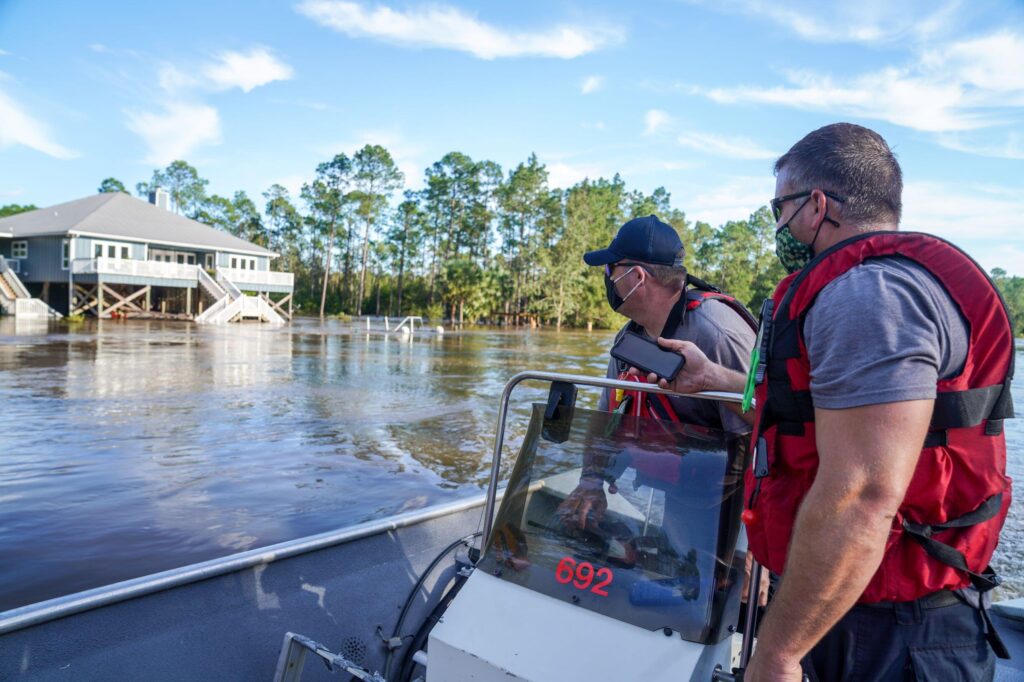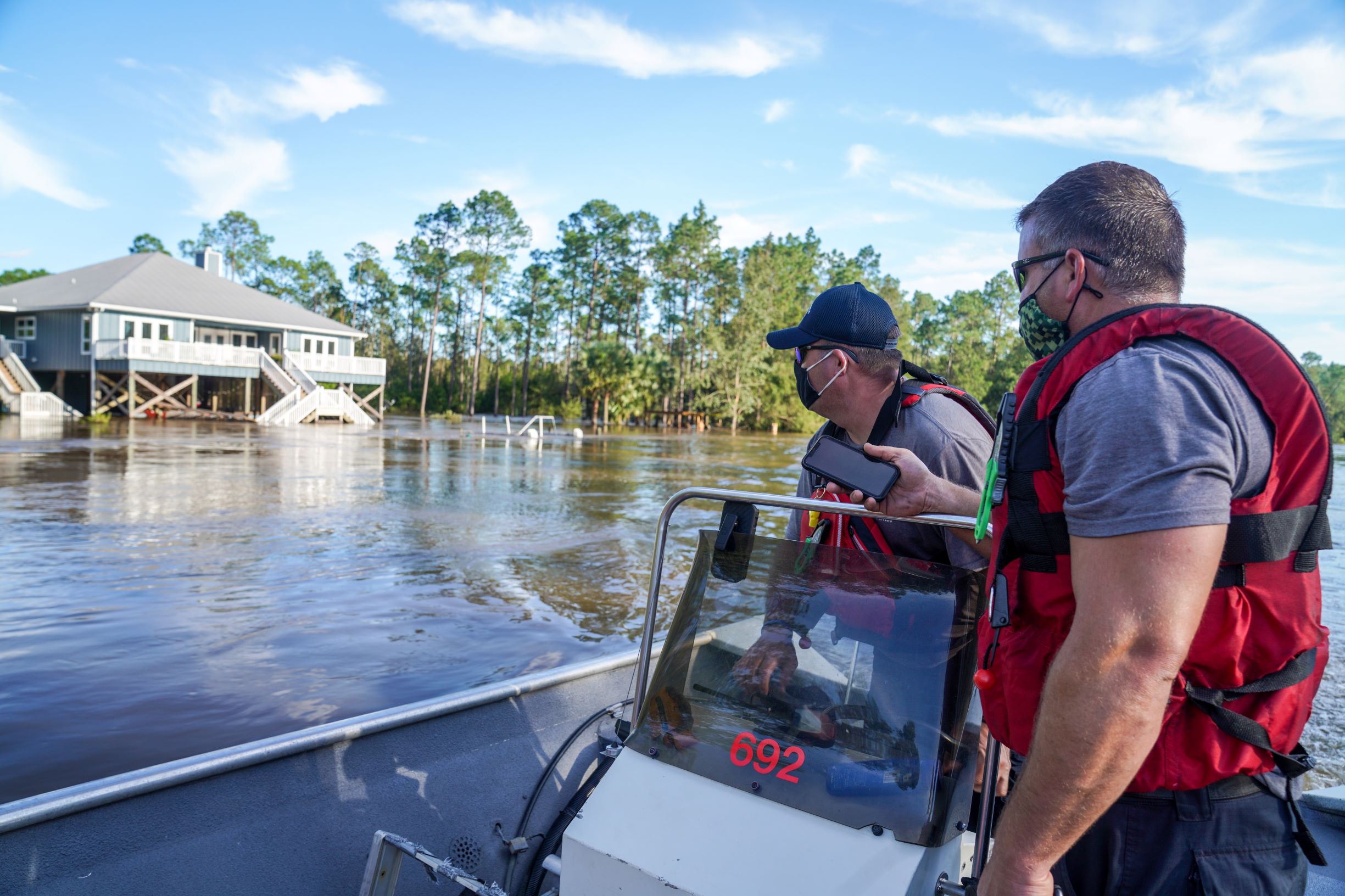Response and Recovery Efforts Continue After Hurricane Sally

Response and Recovery Efforts Continue After Hurricane Sally
jessica.geraci Fri, 09/18/2020 – 15:58

Hurricane Sally made landfall on Tuesday near Gulf Shores,
Alabama, as a category 2 hurricane, causing widespread flooding and
leaving behind a trail of destruction. As conditions calm and the
damage becomes clear, recovery efforts continue along the Gulf
Coast.
Over the last week, President Trump has approved Emergency
Declarations for affected areas in Alabama,
Florida,
Louisiana
and Mississippi.
These declarations allow states to receive federal assistance and
coordinate all disaster relief efforts in response to Hurricane
Sally.
FEMA continues to have supplies available nearby, with shuttle
drivers and trailers ready to move these assets out to fulfill
state requests. Supplies include over 4 million liters of bottled
water, 3.2 million meals, 289,000 blankets, 117,000 tarps, 6,500
cots and 23 generators. As of Friday, six shelters are open with a
population of 366 in affected areas throughout the Gulf Coast.
Due to the coronavirus (COVID-19) pandemic and the need to
protect the safety and health of all Americans, FEMA will conduct
remote home inspections to expedite the delivery of recovery
assistance to applicants based on their eligibility.�
As survivors return home,
document damages and begin cleaning up debris from Hurricane Sally,
it is important to contact your local emergency management or
public works agencies to get information about sorting guidelines
and pickup schedules. Follow these guidelines when clearing
debris:
- Wear safety gloves and glasses when cleaning up.
- Wear sturdy shoes or boots when walking on, or near, debris.
Wear long sleeves and gloves when handling debris. - Don’t drive or walk through flood waters. Be aware of downed
power lines, standing water and other hidden hazards. - When clearing debris from a property, make sure you know the
location of all utilities, both underground and overhead to prevent
personal injury.
As you clean-up, you may see neighbors clearing debris as well.
While recovery is a whole community effort and it is important to
check on neighbors, use caution when doing so. Continue to wear
masks to prevent the spread of COVID-19.
While you may want to help other survivors, do not put your life
at risk by self-deploying to affected areas. Instead, find
trusted
organizations that are operating in the affected area. They
will know where volunteers are needed and can ensure appropriate
volunteer safety, training and housing. Financial contributions to
recognized
disaster relief organizations are the fastest, most flexible
and most effective method of helping.
FEMA will remain engaged in response and recovery efforts and
partner with states, local governments, tribes and community
organizations to make sure help arrives in the areas where it is
needed most.
To find out how you can help, visit FEMA.gov.
Recent Posts
NOAA Weather
Tampa, FL
Last Updated on Jun 5 2024, 6:53 am EDT
Weather by NOAA
Current Conditions: Fair
Temp: 77°F
Wind: SE at 5mph
Humidity: 88%
Dewpoint: 73.0°F
 National Hurricane Center
National Hurricane Center
- The Atlantic hurricane season runs from June 1st through November 30th. April 19, 2025The Atlantic hurricane season runs from June 1st through November 30th.